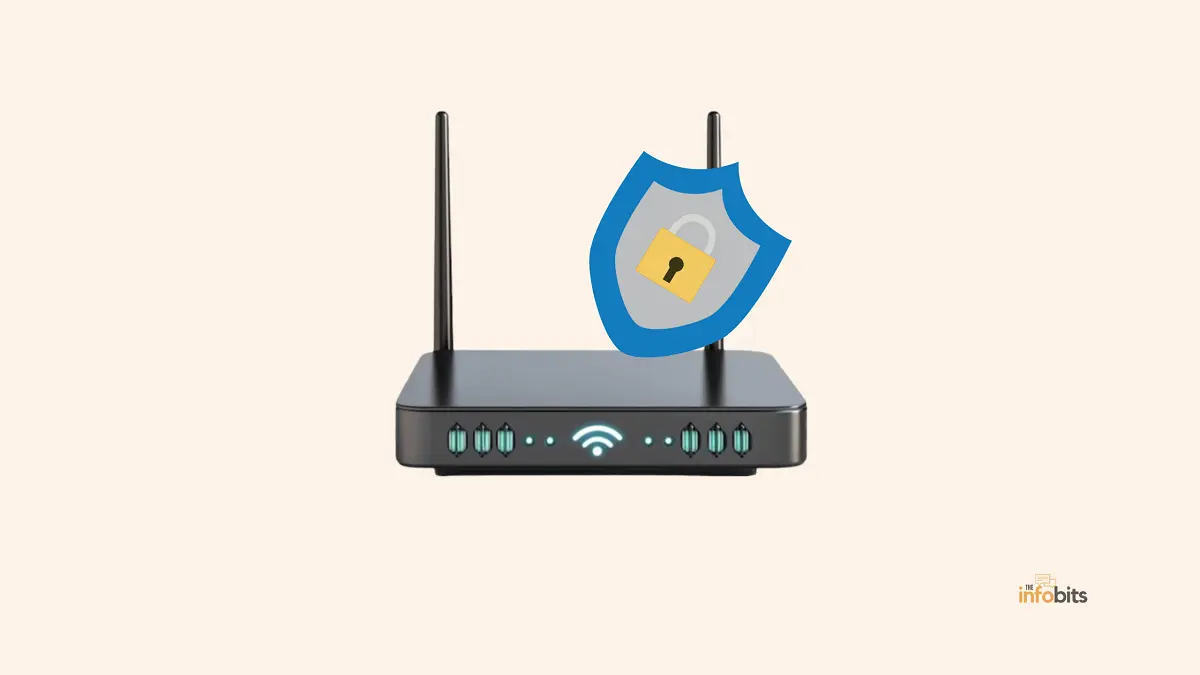Latest Router Security Features To Protect Your Online Privacy
In the age of digital connectivity, the router has become an indispensable device in our homes and offices, serving as the gateway to the internet.
As we continue to rely on online services for everything from work to entertainment, the importance of safeguarding our online privacy has never been greater.
Router security features protect our personal and professional data from unauthorized access.
This article will explore the latest router security features designed to shield your online activities from potential threats and enhance your privacy.
Router Security: The Need and Importance
As the digital landscape evolves, the significance of router security has grown exponentially. With an increasing number of devices connected to our networks, securing the router is essential in the fight against cyber threats.
Routers are the front line of defense, and their security protocols are crucial for maintaining the integrity of networks and protecting sensitive data.
Related: WiFi Security for Beginners: How to Secure Home WiFi Network
The Increasing Importance of Router Security
In recent years, the proliferation of Internet of Things (IoT) devices has made router security more important than ever.
Each connected device represents a potential entry point for cybercriminals. By securing the router, users can safeguard not only computers and smartphones but also smart home devices that may be vulnerable to attacks.
Furthermore, with the shift towards remote work and online learning, routers are now pivotal in ensuring secure and stable connections.
A breach in router security can lead to unauthorized access, data theft, and service disruptions, emphasizing the need for robust security measures.
Current Threats to Online Privacy
Today’s routers face several threats that can compromise online privacy.
Malware, ransomware, and phishing attacks are some of the most common challenges that routers must defend against. Cybercriminals constantly develop sophisticated methods to intercept data and exploit vulnerabilities.
Additionally, man-in-the-middle attacks, where attackers intercept and alter communication between two parties, pose significant risks.
Without proper router security features, sensitive information such as login credentials and financial data can be exposed to unauthorized entities.
Related: The Latest Trends in Router Technology: What You Need to Know
Understanding Your Router’s Security Features
To protect online privacy, it is crucial to understand the security features built into modern routers.
These features are designed to provide layers of defense against various cyber threats. Awareness of how these features work empowers users to make informed decisions about securing their networks effectively.
Firewall: The First Line of Defense
Routers typically come equipped with a built-in firewall, acting as the first line of defense against potential threats.
A firewall monitors incoming and outgoing network traffic and blocks unauthorized access based on predetermined security rules. It serves as a barrier between trusted internal networks and untrusted external networks.
By configuring the firewall according to specific security requirements, users can significantly reduce the risk of cyberattacks.
A well-maintained firewall ensures that only legitimate traffic is allowed through, keeping harmful entities at bay and protecting sensitive information.
WPA3 Encryption: Keeping Data Safe
WPA3 encryption is the latest standard in wireless security protocols, providing enhanced security for Wi-Fi networks.
It offers stronger protection against brute-force attacks by requiring more complex and secure credentials, thus making it harder for unauthorized users to gain access.
With forward secrecy, WPA3 enhances the confidentiality of past sessions, even if a password is compromised.
This feature ensures that data transmitted over the network remains secure, providing peace of mind to users concerned about their privacy.
Guest Networks: Provisioning Safer Access
Many modern routers offer the option to set up guest networks, which provide visitors with internet access without exposing the main network.
This separation is crucial in preventing unauthorized access to sensitive information and devices connected to the primary network.
Guest networks can be customized with different access controls and limitations, ensuring that guests can use the internet without compromising the security of the entire home or office network. This feature is particularly beneficial for environments with frequent visitors.
Latest Router Security Features
Technology advancements have led to the development of new router security features that further enhance protection.
These features are designed to address emerging threats and provide users with state-of-the-art tools to secure their networks.
Malware Protection: On-Router Security Software
Some of the latest routers come with built-in malware protection that operates directly on the device.
This on-router security software scans incoming and outgoing traffic for malicious content and prevents it from entering the network.
By incorporating malware protection at the router level, users can prevent threats from reaching individual devices, reducing the risk of infection and enhancing overall network security.
This proactive approach minimizes vulnerabilities and safeguards user data.
VPN Support: Private Internet Connection
Virtual Private Network (VPN) support in routers enables encrypted connections across the internet, providing users with privacy and anonymity.
By routing internet traffic through a secure VPN server, users can hide their IP addresses and protect their data from prying eyes.
Routers with built-in VPN support allow all connected devices to benefit from a secure connection without the need to install separate software on each one.
This feature is invaluable for users who prioritize privacy and want to ensure their online activities remain confidential.
MU-MIMO: Enhanced WiFi Security Method
Multi-user, Multiple Input, Multiple Output (MU-MIMO) technology enhances wireless communication by allowing multiple devices to receive data simultaneously.
This improves the efficiency and performance of Wi-Fi networks, particularly in environments with many devices.
By optimizing the distribution of bandwidth, MU-MIMO technology reduces the chances of bottlenecks and interference, ensuring a stable and secure connection.
It enhances security by maintaining smooth and reliable connections and minimizing vulnerabilities caused by network congestion.
Optimizing Your Security Settings
Maximizing the security of a router involves more than just relying on built-in features. Users must take proactive steps to configure their routers and maintain optimal security settings.
Regular updates and mindful configuration practices play a critical role in fortifying network defense.
Regular Firmware Updates
Keeping router firmware up to date is essential for maintaining security. Manufacturers frequently release updates to patch vulnerabilities and improve performance.
Regular updates ensure that routers are equipped with the latest security enhancements to defend against evolving threats.
Users should routinely check for and install firmware updates, as these often include critical security patches that address known exploits.
Staying up to date minimizes the risk of exploitation and improves the overall security posture of the router.
Strong Passwords and Network Names
Using strong passwords and unique network names is fundamental in protecting router security.
A strong password includes a combination of letters, numbers, and symbols, making it difficult for attackers to crack using brute-force methods.
Changing default network names and passwords prevents unauthorized access by ensuring that routers are not easily identifiable or susceptible to common attacks.
Personalizing these credentials adds an extra layer of security to the network.
Disabling Remote Management Features
Remote management features, while convenient, can pose security risks if left enabled unnecessarily.
Disabling remote access reduces the chances of unauthorized users gaining control over the network settings, particularly if robust passwords are not in place.
For users who do not require remote management, disabling these features eliminates potential entry points for cybercriminals.
Configuring routers to be manageable only from within the local network enhances security and minimizes vulnerabilities.
Related: A Beginner’s Guide to Setting Up a Router in Your Home
Choosing a Secure Router
Selecting the right router is crucial in building a secure network. As security features vary significantly among models, it is important to choose a router with capabilities that align with your privacy needs and threat landscape.
Essential Security Features to Consider
When selecting a router, key security features to consider include robust encryption standards (such as WPA3), comprehensive firewall capabilities, and support for VPN connections.
Additional features like guest network support and parental controls can further enhance network security.
Users should look for routers that offer regular firmware updates and support for advanced security protocols.
A secure router provides peace of mind by ensuring that sensitive data and devices are protected from possible cyber threats.
Reviews and Router Comparisons
Reading reviews and conducting comparisons can aid in choosing the most secure router.
These resources provide insights into the performance, reliability, and security features of different models, helping users make informed decisions.
Reviews often highlight the strengths and weaknesses of routers, allowing users to select a device that meets their specific security requirements.
Comprehensive research ensures that users invest in a router that will effectively safeguard their online activities.
As our reliance on digital technology continues to grow, securing our online privacy becomes increasingly important.
Understanding and utilizing the latest router security features can significantly enhance network protection, safeguarding sensitive information from potential threats.
By optimizing security settings and choosing routers with advanced capabilities, users can enjoy a secure and private online experience.
Taking these proactive measures not only protects individual networks but also contributes to a safer overall digital environment.
Please share this article with your friends and relatives if you find it useful.
We also ask that you bookmark this page for future reference, as we are constantly updating our articles with new information.
Sign up for our free newsletter as well to receive fresh information immediately in your inbox and keep technically up to date.







